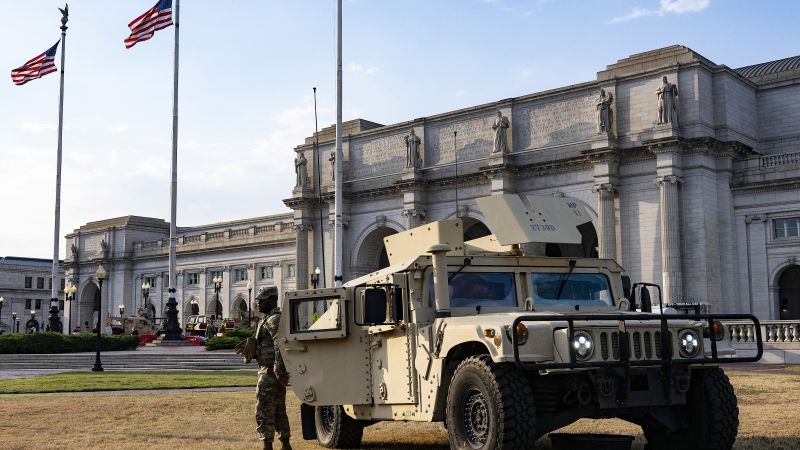In a significant development pertaining to law enforcement in Washington, DC, troops from the West Virginia National Guard have been dispatched to the nation’s capital. This move is part of President Donald Trump’s ongoing campaign to exert federal control over law enforcement in the city. The announcement aligns with the administration’s broader objective to maintain law and order amidst rising crime rates in the region.
West Virginia Governor Patrick Morrisey, a member of the Republican party, revealed the deployment in a social media post on Saturday. He stated, “At the request of the Trump administration, I have directed the @WVNationalGuard to support the President’s initiative to make D.C. safe and beautiful. We are deploying 300-400 skilled personnel to the nation’s capital, reflecting our commitment to a strong and secure America.” This statement underscores the state’s enthusiastic support for federal initiatives aimed at enhancing public safety.
The governor’s office confirmed that the operation would be federally funded, ensuring the National Guard’s provision of essential equipment and training. A high-ranking White House official elaborated on the objectives of this latest deployment, framing it as part of Trump’s initiative to beautify and secure Washington, DC. Despite the significant military presence, it was noted that the National Guard’s primary role in the capital at this time is not to make arrests. Instead, the troops are tasked with protecting federal property and creating safe conditions for law enforcement personnel to fulfill their duties when necessary.
Interestingly, the National Guard’s personnel may now carry arms, albeit strictly for self-defense. Reports mentioned that while guardsmen would have access to their weapons stored securely in vehicles, their current function does not involve active law enforcement engagements. The streets have seen an influx of federal agents following Trump’s declaration of a crime emergency. An internal Secret Service memo indicated an increase in patrol agents, bolstering security measures for public safety.
The current situation has involved over 700 federal law enforcement officials from various agencies including the FBI, ATF, DEA, and the Secret Service. Trump himself had previously confirmed the surge of federal agents into the district, emphasizing the administration’s commitment to addressing crime effectively. On the ground, numerous operations have been launched, including the removal of homeless encampments which have drawn criticism from advocates who argue that such measures could exacerbate existing issues rather than help resolve them.
Opposition to the federal intervention has emerged from several quarters. DC Councilmember Robert White expressed his alarm regarding the deployment of West Virginia troops, indicating a breach of democratic norms. He highlighted concerns over the potential for federal overreach and its implications for local governance and community safety. The authorization of federal control over local police operations has prompted legal challenges, with DC authorities filing lawsuits against the Trump administration’s directives.
Critics have pointed out that the appropriation of powers typically reserved for local law enforcement raises serious questions about the administration’s understanding of democracy and the rule of law. The legal tussle continued as Attorney General Pam Bondi’s directive for appointing an “emergency police commissioner” faced opposition in federal court, leading to a reassessment of the control dynamics within the Metropolitan Police Department.
As these developments unfold, the White House has maintained that their approach is focused on enhancing public safety. However, DC Mayor Muriel Bowser has raised concerns regarding the implications of federal control, labeling the initiative an “authoritarian push.” As local leaders grapple with the complexities of this administration’s directive to federalize local policing, the long-term effects on community relations and public safety directives remain to be seen.
This narrative is still evolving, signifying the contentious atmosphere surrounding law enforcement in the capital. Security arrangements continue to be at the forefront of discussions aimed at holding local and federal systems accountable for public order. The implications of this federal intervention on local autonomy and governance are critical topics in the current socio-political climate.











